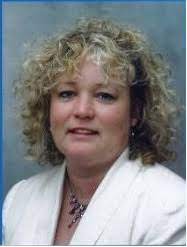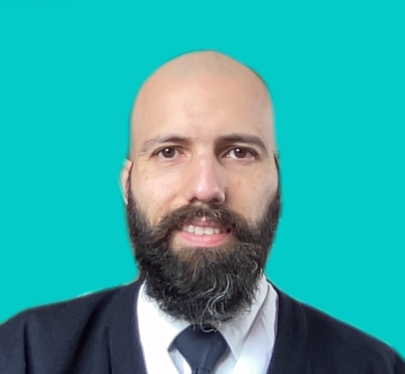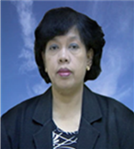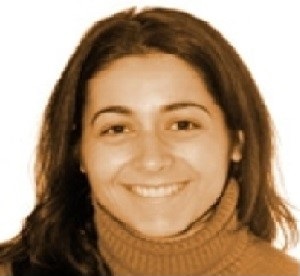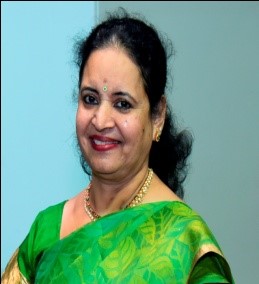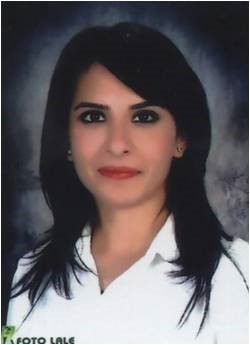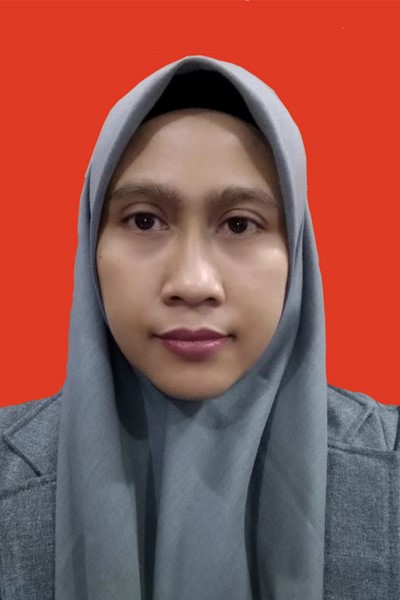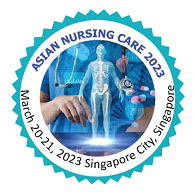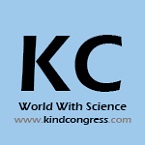About Conference
Conference Series LLC Ltd Welcoming to “32nd Asia Pacific Nursing Care Congress” which is going to be held during March 20-21, 2023 Singapore City, Singapore. The conference is organized with the theme of “Nursing Care-Caring Today for a Healthier Tomorrow”. Nursing Care encompasses a wide range of disciplines, techniques, procedures, and skills that are medically and compromised. It also focuses on educational advanced nursing research directed towards evidence based care and its impact on clinical practice and outcomes. A Nursing Professionals has a special set of competence and ability. Not only can they diagnose patients and finally provide medication, but they also serve in leadership and consulting role. Nursing is one of the cornerstones of the health care system. Nurses play an important role in health promotion, prevention strategies, and care of people.
Conference Series Ltd organizes a conference series of 1000+ Global Events inclusive of 1000+ Conferences, 500+ Upcoming and Previous Symposiums and Workshops in USA, Europe & Asia with support from 1000 more scientific societies and publishes 700+ Open access Journals which contains over 50000 eminent personalities, reputed scientists as editorial board members.
Importance of Asian Nursing Care 2020
Nursing Care encompasses a wide range of disciplines, techniques, procedures, and skills that are medically and developmentally compromised. It also focuses on educational advanced nursing research directed towards evidence based care and its impact on clinical practice and outcomes. A Nursing Professionals has a special set of competence and ability. Not only can they diagnose patients and finally provide medication, but they also serve in leadership and consulting role. Nursing is one of the cornerstones of the health care system. Nurses play an important role in health promotion, prevention strategies, and care of people.
The Asian nursing care 2023 is a platform for nursing students, faculty, deans, researchers, and leaders to collaborate on topics affecting nursing education. Attendees can take advantage of opportunities to learn about Nursing Care conference from a variety of oral and poster presentations. Meet and network with nurses ranging from students to deans, faculty, and researchers. Take advantage of opportunities to collaborate with nurses from around the world. Attend prominent plenary sessions about relevant issues affecting Nursing Care.
Asian nursing care 2023 is a global platform assembling world-class professors, scientists, researchers, students, nurses to discuss in-depth and learn about the exciting innovations, advancements, researchers and best practices, current trends etc. through Oral and Poster presentations, influential plenary presentations and educational workshop sessions. It is an essentials collaborated healthy forum to explore issues of mutual concern as well as exchange knowledge, share evidence, ideas, and generate solutions. The time has come to this world to contemplate your dexterity.
Why to attend:
Asian nursing care 2023 is committed to create fascinating gathering of nursing & healthcare professionals from around the world to discuss and confer on their latest research. Advanced Nursing research often referred to as nursing practitioner will lecture their latest research and teach on essential topics like clinical nursing, pediatric nursing, surgical nursing, nursing practice, sedation etc.
-
Commendable talks by the first-string of the global scientific community
-
Global Recognition to meritorious Researchers
-
Novel Techniques to Benefit Your Research
-
Global Business and Networking Opportunities
-
Exquisite platform for exhibiting your by-products
-
Discover how advances in the health sector are impacting globally
-
Engage your mind and enrich your heart with new insights
Target Audience:
-
Scientists
-
Doctors
-
Professors
-
Nursing Lecturers
-
Nurses
-
Healthcare Industries
-
Directors of Association and Societies
-
Researchers, Training Institutes
-
Registered Nurses
-
Nurse Practitioners
-
Students
-
Ph.D. Scholars
Benefits
-
Meet Experts & Influencers Face to Face
-
Certification by the organizing committee
-
All accepted abstracts will be published in the supporting journals of the conference and Conference Book Proceedings
-
Each abstract will receive a DOI number provided by Cross Ref
-
Live Streaming of your presentation through our websites and YouTube
-
One to One Interaction with Keynote Speakers, OCM and Eminent personalities for the future course of work
-
Global networking: In transferring and exchanging Ideas
Tracks and sessions
Track 1: Nursing specialties
Nurses can specialize in a wide range of fields, and they may decide over the course of their careers that they want to become certified in one or more specialties. Adult nursing, pediatric nursing, mental health nursing, and learning disability nursing are the four main subspecialties of nursing.
Following is a list of some of the available nursing specialties.
-
Diabetes Education Nurse
-
District Nurse
-
Dialysis Nurse
-
Education
-
Emergency Nurse
-
Family Health Nurse
-
Fertility Nurse
-
Gerontology (Aged Care) Nurse
-
Hematology Nurse
-
Infection Control
-
Intensive Care Nurse
-
Addiction Nurse
-
Burn Care Nurse
-
Cardiology (Heart) Nurse
-
Clinical Nurse
-
Community Health Nurse
-
Continence Nurse
Track 2: Nursing Educations
The goal of nurse education is to prepare nurses for their responsibilities as nursing care professionals. It consists of both theoretical and practical training. In nursing schools, experienced nurses and other medical professionals who are qualified or experienced for educational tasks present this education to student nurses. The majority of nations provide nurse education programs that may be applicable to both general nursing and more specialized fields like mental health nursing, pediatrics nursing, and post-operative nursing. The average length of a programme leading to autonomous registration as a nurse is four years. Additionally, post-qualification courses in nursing-related specialties are offered through nurse education.
A student of nursing may register in a course of study those results in a diploma, an associate degree, or a bachelor's degree in nursing.
Track 3: Healthcare in Nursing
In order to help people recover from illness and maintain their best health and quality of life, nurses focus on caring for patients and their families. Because of their diverse areas of practice and method of providing healthcare, nurses set themselves apart from other medical practitioners. They are crucial for maintaining health, preventing illness, and providing healthcare for everyone, including those who are physically or mentally ill or disabled.
Role:
-
Promote healthiness and ward off disease
-
Assistance for those who are physically or mentally ill and disabled
-
Take part in healthcare education
-
Work with other members of the team to provide healthcare.
-
Oversee nurse education and training
-
Contribute to scientific research
Track 4: Nursing Practice
The American Nurses Association (ANA) plays an important role in determining the aims and standards for nursing practice. By implementing processes of diagnosis and treatment to human experiences of health and illness, nursing is defined by the American Nurses Association (ANA) as "a caring-based practice" (ANA, 1994).
The American Nurses Association (ANA) summarizes three fundamental nursing activities that specifically mention environmental and public health concerns, a preventive approach to health, and consideration for populations as well as individuals:
• Rehabilitation programs reduce the effects of disease and illness.
• Supportive practices aim to change interpersonal dynamics or the surrounding environment to promote health.
• Promoting behaviors encourage healthy lifestyles, support family and personal growth, and help people, families, and communities achieve their own objectives.
Track 5: Nursing administration
The field of nursing is very important and offers many career opportunities. Healthcare currently has more job openings than any other industry in the United States, according to the U.S. Bureau of Labor Statistics. The majority of healthcare professionals in this field work as registered nurses, and that number are only anticipated to rise. Nearly 222,000 nursing jobs are anticipated to become open for applicants between 2019 and 2029, bringing the total number of registered nurses in the US to over 3,300,000.
-
31 percent of registered nurses (RNs) worked in general medical and surgical hospitals
-
24 percent in specialty hospitals,
-
16 percent in psychiatric and drug rehab facilities,
-
16 percent in outpatient care facilities,
-
11 percent in home healthcare settings,
-
9 percent in nursing care facilities like nursing homes and 7 percent in doctor's offices.
Track 6: Nursing Care Management
The term "care management" refers to a broad range of services and initiatives that support patients with long-term or complex medical illnesses in taking control of their health. The main objective of care management is to increase patient health. Along the way, the strategy hopes to increase patient participation, decrease hospital visits, and enhance care coordination. Software for care management can help healthcare practitioners achieve such objectives in a big way. The management of comprehensive care necessitates collaboration. To assist patients in managing their complicated medical demands, doctors, clinicians, patients, and their caretakers must all collaborate. Elements of a care management program include some or all of the following:
-
A dedicated care team
-
A comprehensive care plan
-
Medication and care-management tools
-
A hospital-to-home program
-
Patient education materials
-
Expanded communication between patients and healthcare professionals
-
Care coordination with community and home-based service providers
Track 7: Strategies for Strengthening Nursing
Technology is altering healthcare and expanding the range of procedures and treatments that nurses are capable of providing (Crisp, 2018). Technology can be used in clinical settings to assist clinical decisions, conduct and receive provider-to-client telemedicine, enable distant care, enhance the delivery of primary health care services, and empower patients. The South African health system is heavily digital, thus it is important to embrace technology's benefits for enhancing patient care. In spite of changing contexts, technology, and population health demands, nurses continue to be the primary coordinators and givers of clinical care, thus it is crucial to arm them with the tools they need to take use of this technology. By doing this, nurses will be able to deliver clinical care that is safer, more moral, and more effective.
Track 8: Nursing Care Informatics
Nursing informatics is a branch of nursing that combines nursing, computer, and information sciences in order to generate and maintain medical data and systems that support nursing practice and enhance patient outcomes. The following technologies have developed as a result of health care/nursing informatics:
-
Computerized provider order entry (CPOE)
-
Electronic medical records (EMRs)
-
Test results
-
Progress notes
-
Nursing notes
-
Medication records
Track 9: Nurses in Hospital Management
Nursing management includes the performance of governance and decision-making leadership tasks within organizations that employ nurses. It includes of management-related tasks like staffing, planning, organizing, and controlling. Viral and fungi pathogens can cause hospital infections. All hospitals have policies and procedures for infection control, and staff members take care to avoid infections.
Track 10: Patient Safety
Patient safety is a health care discipline that arose as a result of the increasing complexity of health care systems and the rise in patient harm in health care institutions. It tries to prevent and minimize risks, mistakes, and harm to patients during the delivery of healthcare. Continuous improvement based on learning from mistakes and unfavorable outcomes is a concept of the discipline.
The provision of top-notch, critical healthcare services depends on maintaining patient safety. Indeed, there is broad agreement that effective, secure, and person-centered health services should be provided everywhere. Additionally, health services must be prompt, equitable, integrated, and efficient in order to reap the rewards of high-quality medical care.
Track 11: Palliative Care
Palliative care is an approach that improves the quality of life of patients (adults and children) and their families who are facing problems associated with life-threatening illness. It prevents and relieves suffering through the early identification, correct assessment and treatment of pain and other problems, whether physical, psychosocial or spiritual.
Addressing suffering involves taking care of issues beyond physical symptoms. Palliative care uses a team approach to support patients and their caregivers. This includes addressing practical needs and providing bereavement counselling. It offers a support system to help patients live as actively as possible until death. Palliative care is explicitly recognized under the human right to health.
Track 12: Critical Care Nursing
Critical care nursing is the field of nursing with a focus on the utmost care of the critically ill or unstable patients following extensive injury, surgery or life threatening diseases. Critical care nurses can be found working in a wide variety of environments and specialties, such as general intensive care units, medical intensive care units, surgical intensive care units, trauma intensive care units, coronary care units, cardiothoracic intensive care units, burns unit, pediatrics and some trauma center emergency departments. These specialists generally take care of critically ill patients who require mechanical ventilation by way of endotracheal intubation and/or titratable vasoactive intravenous medications.
Track 13: Nursing Research
Nursing research is evidence-based and utilized to support nursing practices. Since Florence Nightingale's time till the present, nursing has evolved into an evidence-based field of practice. Many nurses now work as researchers based in universities as well as in the healthcare setting.
The use of research findings to support nursing treatments is promoted in nurse education. If a nurse's intervention was validated by research, courts in England and Wales may decide whether she acted properly.
The majority of nursing research falls into two categories:
-
Quantitative research, which is grounded in the logical positivist paradigm and focuses on client outcomes that are quantifiable, typically using statistics. The randomized controlled trial is the most popular research methodology.
-
Qualitative research studies the experience of individuals receiving or providing nursing care, concentrating in particular on the meaning that it carries for the individual. It is founded on the paradigms of phenomenology, grounded theory, ethnography, and others. The most popular research techniques are ethnography, case studies, focus groups, and interviews.
Track 14: Oncology Nursing
A specialist nurse who treats cancer patients is known as an oncology nurse. These nurses need higher levels of certification and cancer clinical experience than the normal nursing curriculum school can offer. In order to provide cancer patients with the necessary screenings, preventive measures, symptom management, and care to maintain as much normal functioning as possible, and supportive measures at the end of life, oncology nursing care must address a variety of patient demands.
Track 15: Nursing Midwifery
A nurse midwife is someone who has finished nursing and midwifery education leading to practice as a nurse midwife and may or may not hold a credential in the specialty. They are both nurses (often registered nurses) and midwives. Nurse midwives offer care to women of all ages, including throughout pregnancy, after delivery, as well as for well-woman care and birth control.
-
There are over 27 million men and women working as nurses and midwives worldwide.
-
There is a global shortage of health professionals, especially nurses and midwives, who account for more than 50% of the current shortage in health professionals.
-
South East Asia and Africa have the greatest needs-based shortages of nurses and midwives.
-
According to the WHO, an additional 9 million nurses and midwives will be required globally by 2030 in order for all nations to meet the Sustainable Development Goal 3 on health and well-being.
Track 16: Military Nursing
Most significant branches of the armed forces, such as the Army, Navy, and Air Force, employ military nurses. They support military personnel and their families with direct patient care, assist in the medical care of injured soldiers, and pursue the same practice specializations as nurses in non-military settings. Amputee Coalition of America, Army Nurse Corps Association (ANCA), US Army Medical Department Center and School (AMEDDC&S), Navy Nurse Corps Association, and U.S. Public Health Service Commissioned Corps are among the organizations for military nurses (NNCA)
Track 17: Holistic Nursing
A holistic approach to nursing considers the patient's entire being, including their physical health as well as their social environment, psychological health, cultural background, and religious views. Numerous ideas explain the significance of nurses treating patients holistically and the role that education plays in advancing the aim of holistic nursing. The ability to communicate with patients and other practitioners is a key competency in holistic nursing. This highlights the fact that patients would receive care for their body as well as their mind and spirit. The integration of a person's mind, body, and spirit with their environments is the focus of the nursing specialty known as holistic nursing. The science of unitary humans, as described by Martha E. Rogers in An Introduction to the Theoretical Basis of Nursing, and the mid-range theory Empowered Holistic Nursing Education, as described by Dr. Katie Love, serve as the theoretical foundations for this specialty. The American Nurses Association (ANA) now recognizes holistic nursing as a nursing specialty with a set of standards and a defined scope of practice. Holistic nursing emphasizes how the body, mind, and spirit are all interconnected and how spiritual awareness in nursing can aid in the healing of illness. The goal of holistic medicine is to promote overall health and prevent illness rather than only treat it.
Track 18: Home Health Nursing
Home health nursing is a nursing profession in which nurses offer patients of all ages multifaceted care at home. A cost-effective method of providing high-quality care in the comfort of the patient's home is through home health care. Based on the client's diagnosis, home health nurses build care plans to fulfill goals. Preventive, therapeutic, and rehabilitative measures may be a part of these regimens. CNAs are also under the supervision of home health nurses. The Home Healthcare Nurses Association is the organization for home health nurses (HHNA). Home health care is meant for patients who are stable enough to be sent home but still need professional nurses to evaluate, start, and monitor nursing interventions.
Track 19: Advancement in Nursing Care
For doctors and nurses who are responsible for a big patient load, certain technologies can make patient care simpler and more effective. They can also help patients get the care they require by providing more practical and easily accessible solutions.
Many of these modern medical technologies are beneficial to the nursing profession in terms of everyday tasks as well as reducing human error and mistakes that can occur when there are not enough nurses and they are working long hours with too many patients.
-
Automated IV Pumps. Automated IV pumps control the dosages and drips given to patients. ...
-
Portable Monitors. ...
-
Smart Beds. ...
-
Wearable Devices. ...
-
Electronic Health Records. ...
-
Centralized Command Centers. ...
-
Telehealth and Apps.
Track 20: Acute Care
Acute care is a subset of secondary health care in which a patient receives immediate, short-term attention for a serious sickness or injury, an urgent medical condition, or while healing from surgery. In terms of medicine, acute medical treatment is the antithesis of chronic, or long-term, care.
Teams of healthcare specialists from several medical and surgical disciplines typically provide acute care services. In addition to assistance with diagnostic tests, surgery, or follow-up outpatient treatment in the community, acute care may necessitate a stay in a hospital emergency room, ambulatory surgical Centre, urgent care facility, or other short-term stay facility. Hospital-based acute inpatient care typically has the goal of discharging patients as soon as they are deemed healthy and stable. Acute care settings include emergency department, intensive care, coronary care, cardiology, neonatal intensive care, and many general areas where the patient could become acutely unwell and require stabilization and transfer to another higher dependency unit for further treatment.
Market Analysis
The nursing care market consists of sales of nursing care and related goods by entities (organizations, sole traders and partnerships) that provide home health care and residential nursing care. This industry includes establishments that provide home healthcare services, nursing care facility services, personal services, counseling Advanced Nursing 2022 services, vocational therapies, rest home services, social services, and nutritional services.
The global nursing care market is expected to grow from $1010.1 billion in 2019 to $1058.6 billion in 2020 at a compound annual growth rate (CAGR) of 4.9%, despite the economic slowdown across countries owing to the pandemic outbreak. This is mainly because of the huge demand for nursing care providers including emergency medical service personnel, nurses, nursing assistants, physicians, trainees, and contractual staff, who are at the frontline tackling COVID-19 virus and providing care for coronavirus patients across the world. There is a rise in demand for home health-care workers comprising nurses, therapists and personal care aides for the most vulnerable population. The market is then expected to grow at a CAGR of 7% from 2021 and reach $1374.9 billion in 2023. Western Europe was the largest region in the global nursing care market, accounting for 43% of the market in 2019. North America was the second largest region accounting for 33% of the global nursing care market. Africa was the smallest region in the global nursing care market. Integrated care services are being offered by many organizations in this industry to increase revenues by offering additional services. Integrated care offers a wide variety of medical care at various levels of intensity including transitional hospital care, short-term rehabilitation, home health, hospice, palliative care and personal home care assistance, allowing the health care companies to provide services to the patients in a range of settings. Home health care service providers, such as Kindred Healthcare, are providing home integrated care services which are being adopted by patients.
The major players in the global nursing care market are Genesis Healthcare, Kaiser Permanente, Brook dale Senior Living, Kindred Healthcare, The Ensign Group, Inc. Genesis Healthcare, Kaiser Permanente, Brook dale Senior Living, Kindred Healthcare, The Ensign Group, Inc.
The countries covered in the global nursing care market report are Argentina, Australia, Austria, Belgium, Brazil, Canada, Chile, China, Colombia, Czech Republic, Denmark, Egypt, Finland, France, Germany, Hong Kong, India, Indonesia, Ireland, Israel, Italy, Japan, Malaysia, Mexico, Netherlands, New Zealand, Nigeria, Norway, Peru, Philippines, Poland, Portugal, Romania, Russia, Saudi Arabia, Singapore, South Africa, South Korea, Spain, Sweden, Switzerland, Thailand, Turkey, UAE, UK, USA, Venezuela, Vietnam
The global nursing care market is segmented:
1) By Type, Home Health Care Providers, Nursing Care Facilities, Orphanages and Group Homes, Retirement Communities
2) By End User Gender, Male, Female
3) By Type of Expenditure, Public, Private Sub segments Covered, Home Health Care Agencies, Visiting Nurses, In-Home Hospice Care Services, Assisted Living Facilities Without On-Site Nursing Care, Assisted Living Facilities For The Elderly Without Nursing Care, Continuing Care Retirement Communities, Rest Homes Without Nursing Care
Asia-Pacific Elderly Care Market, By Product Type (Pharmaceuticals, Housing and Assistive Devices), Service (Institutional Care, Homecare, Adult Day Care), Application (Heart Diseases, Cancer, Kidney Diseases, Diabetes, Arthritis, Osteoporosis, Neurological, Respiratory, Others)– Industry Trends and Forecast to 2029

Market Analysis and Size
According to the WHO, the senior population in emerging nations is expected to reach about 1 billion by 2050, resulting in a high demand for elder care services and, as a result, expanding the market's scope in the near future. The increase in Asia-Pacific population life expectancy and the rise in illnesses such as dementia and Alzheimer's disease among the elderly will provide attractive growth opportunities for the elder care services business in the coming years. Furthermore, non-profit clinics, autonomous charitable units, and government-sponsored institutions have all played an important part in leveraging market expansion. Data Bridge Market Research analyses that the elderly care market which was USD 832.8 billion in 2021, would rocket up to USD 1268.43 billion by 2029, and is expected to undergo a CAGR of 5.40% during the forecast period 2022 to 2029. The market report curated by the Data Bridge Market Research team includes in-depth expert analysis, patient epidemiology, pipeline analysis, pricing analysis, and regulatory framework.

